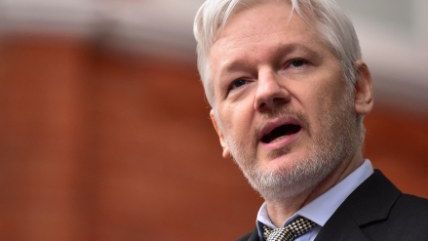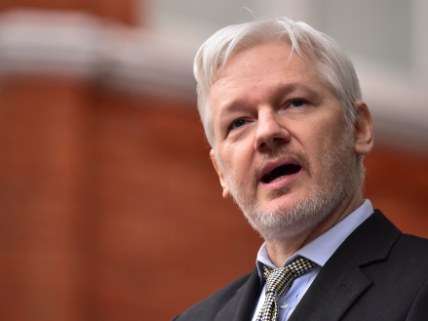Hey Media: Let's Not Turn Russian Hackers into the Next WMDs, Okay?
Please stop ignoring that government officials have agendas.


Russian government hackers have taken control over our power grid! Oh, wait … no … never mind. A laptop not connected to the power grid at all had some malware on it that does not appear to be connected to the Russian government after all.
You'll be forgiven for having ignored this final absurd international cybersecurity story of 2016 in favor of celebrating the passing of a year many folks couldn't wait to see end. On Friday evening, The Washington Post reported that hackers connected to the Russian government had penetrated the United States electrical grid through a Vermont power company, and the culprits were the same hacking group President Barack Obama's administration had associated with getting the release of internal emails from the Democratic National Committee.
The story spread like wildfire through social media, particularly among those unhappy with President-Elect Donald Trump's warm relationship with Russian President Vladimir Putin and his open skepticism of federal intelligence reports. Except the story turned out to be wildly inaccurate. Very quickly it turned out that the infected computer was not connected to the power grid and that the hackers (Russian or otherwise) did not gain access to the power plant. And by Monday, The Washington Post had reported that it didn't even appear that Russian hackers were even involved.
The Post relied on anonymous government sources for its reporting, and when dealing with cybersecurity and tech issues there are so many opportunities for information to go awry. Relying on anonymous information from intel officials deliberately trying to shield themselves from taking responsibility for such leaks is a bad idea. In fairness to the Post, it very quickly corrected its mistakes, though it came after the story spread far and wide.
It's very easy—and relevant—to look at what happened with this report and reflect back on the insistence from government sources that Saddam Hussein was hoarding weapons of mass destruction in Iraq. Trump himself pointed this comparison out even before Friday's news blitz, attempting to shield himself from criticism for any connection to the DNC hack.
America went to war over WMDs and many, many people died, Americans and Iraqis (and others). It seems unlikely that a response as extreme would happen between the U.S. and Russia, even had Hillary Clinton won instead of Trump. Nevertheless, we should all be very concerned at the possibility of not just history repeating, but for both media outlets and government intelligence officials to repeat their roles in helping make it happen.
It's so easy to screw up reporting on cybersecurity (CNN was roundly mocked for using a screenshot from video game Fallout 4 to accompany its coverage of Russian sanctions to show what hacking looked like). Even before the initial Washington Post report was corrected, there was a big red flag buried deep within it. The initial reporting acknowledged that any "hacking" that took place happened because whoever was operating the computer in question clicked on a link from a phishing email that installed malware on the computer. Just as with the hack in the Democratic National Convention case, this isn't just a situation of a malicious intruder forcing his way into a system. He or she or they were invited in because of poor security practices on the user end.
It's very important to remind folks of this component of cybersecurity vulnerability because otherwise this debate becomes about "What should America do to countries that engage in cyberespionage?" instead of "What should America do to prevent cyberespionage?" The difference between those two questions is very relevant. The first question creates an environment of intrusion and intervention in other countries. The second question creates an environment of protecting America from threats and making our defenses stronger. On a very fundamental level, it's the same debate America has frequently over foreign military interventions, though we can hope this particular debate won't result in more random civilians in countries where America doesn't even have military authorizations being bombed by drones.
As for the "hacking" of the Democrats that prompted sanctions from the White House, Julian Assange at Wikileaks is insisting that the Russian government is not the source of the information. Assange will be interviewed live tonight by Sean Hannity at Fox News. If what Assange says is true, that means the source of the leak is not anonymous. As Michael Moynihan (of Reason's Fifth Column podcast) noted, this puts Assange at odds at his previous statements that Wikileaks has been set up so that they don't know the sources of their information. It's possible that Wikileaks knows who the source of the DNC emails are because they received them in a different fashion than usual. Maybe that will be explained in tonight's interview.
Over the holiday weekend, Nick Gillespie pointed out the problems with treating Putin with the same kind of boogeyman status as the leaders of the former Soviet Union. And Ed Krayeweski warned last week of the damage to our own government's credibility for punishing other countries for leaking information that helps Americans see how the political sausage is truly made.


Show Comments (289)